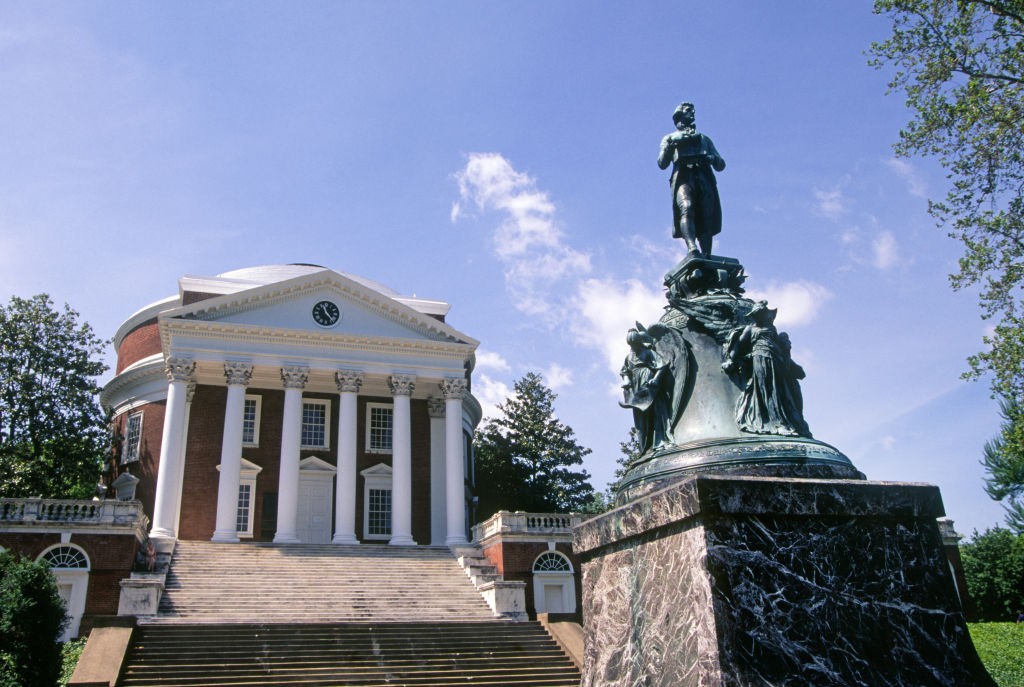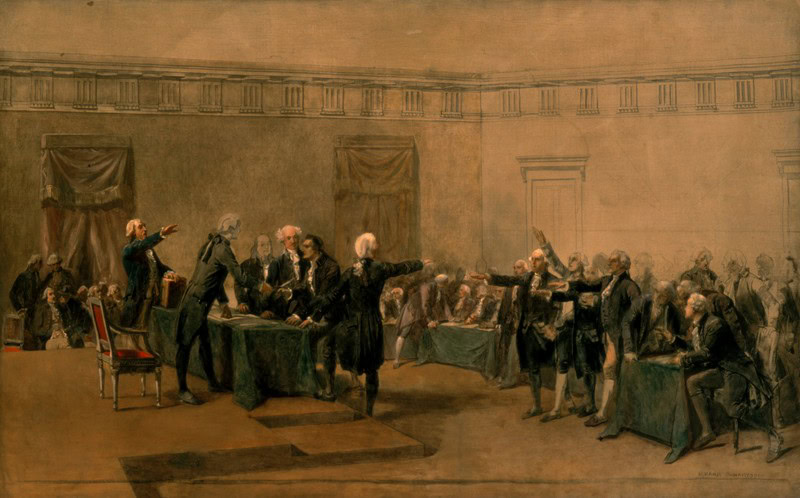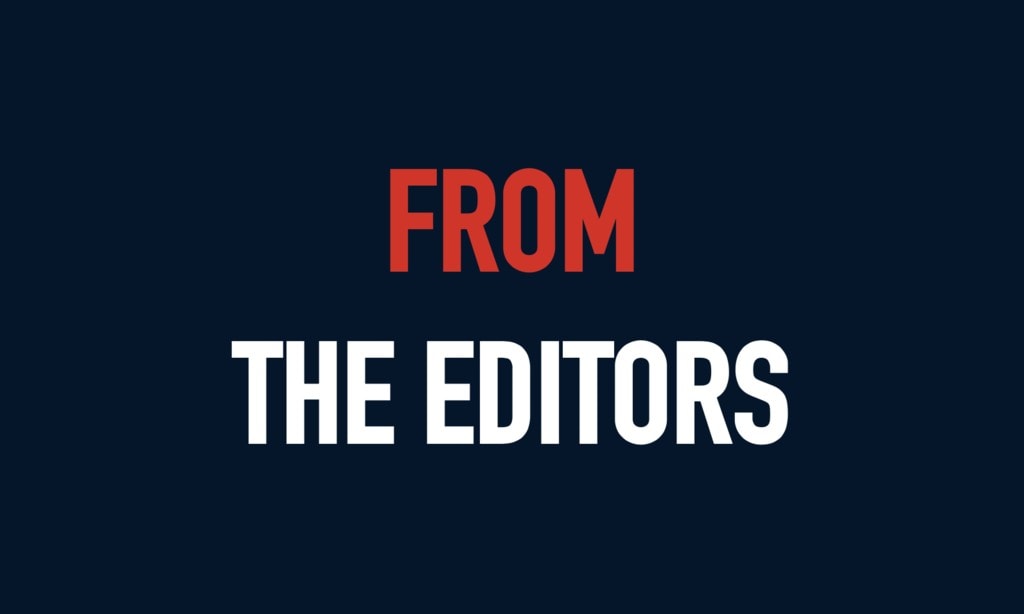American Education Is Political Education

We can’t escape the need to form citizens, and we shouldn’t want to.
Education in America has a political problem. At this point, even the Chronicle of Higher Education admits that conservatives have been winnowed out of academia, leaving a brittle coterie of narrow-minded extremists to staff faculties across the country. But the problem does not end with leftist indoctrination. Conservatives are increasingly divided about how to address the issue.
One form of counter-revolution is taking shape in Ron DeSantis’s Florida. There, government officials have used state power not only to overhaul the administration at New College of Florida, but also to impose curricular reforms across the state’s educational system. This approach, though, has drawn criticism from anti-woke liberals and moderates like David French and Jordan Peterson.
DeSantis, Chris Rufo, and their allies intend to wield state power for good while their enemies wield it for evil. For critics, this only shifts the problem across the aisle: where once the University of Toronto tried to force Peterson to use neo-pronouns, perhaps New College will mandate a traditional view of American civics. Dissenters would then be purged as Peterson was.
But education in America has always been political. This is true in both its content and form. The Founding generation in America expected, primarily through collegiate institutions, to transmit certain content—good morals, useful skills, and loyalty—to citizens of the American republic. They undertook to do this through the law: states passed legislation, levied taxes, and formed commissions to establish and regulate schools and curriculum. In this very real sense, American education was politicized from the beginning.
For an anti-woke liberal, however, education is about learning “how to think, not what to think.” A college should be a value-neutral marketplace of ideas dedicated to no-holds-barred debating, of anything. There is a manly and salutary love for parrhesia in this view, and it comes as a refreshing change from the fragile, hair-trigger sensitivity of modern academic life. But free speech alone is not a sufficient basis for a philosophy of education. Without an expressly stated set of political aims, liberals lack the means to rationally defend their convictions that free speech is desirable or possible in the first place.
Why care about free-ranging discussion? Maybe because it is the best way to arrive at the truth. But what if the process of free-ranging discussion concludes that free-ranging discussion is bad? What if the process of open debate at a public college arrives at the conclusion that the United States is a genocidal settler-colonialist fascist state which must be dismantled by means of targeted violence against whites? Is that okay? Should taxpayers be on the hook to fund the professors and students who arrive at such a conclusion?
Noah Gould attempts to remedy the flaws in the liberal philosophy of education while simultaneously trying to keep schools out of the hands of those whom he considers woke Right activists, vying to replace the woke Left ones. Education cannot be strictly neutral, Gould says, because it has goals more definite than open debate—namely, in his words, “forming fully developed human beings.”
However, borrowing from Abraham Kuyper’s concept of sphere sovereignty, Gould argues that precisely because education has higher goals that transcend politics, it belongs beyond the reach of government. Hillsdale College and Grove City College are his models, at least in this regard. What Gould hints at, then, is that government involvement in education is fundamentally unwise, and even unjust: “The threat of encroachment of one sphere upon another calls into question the validity of public universities.”
Whatever the merits of this position, it is radically out of step with the educational tradition in this country. Kuyper was a theologian and prime minister in the Netherlands and a leader of the Anti-Revolutionary Party. But why defer to him when our Founding Fathers—themselves accomplished statesmen and polymaths—present a contrary view and an example of educational politics?
Nurseries of Wise and Good Men
The Founders had high and definite hopes for education. Perhaps nowhere is this better seen than in John Adams’s letters to his son John Quincy. Adams, Sr. imparts to his son the most memorable and succinct summary of the Founders’ educational vision to be found anywhere: “You will ever remember that all the End of study is to make you a good Man and a useful Citizen.” All educational debate in America should begin with this maxim. And possibly end with it.
The formation of good men and useful citizens was not something the Founders merely hoped to achieve through their own sons’ study with private tutors. They wanted to bestow it on the citizenry at large, through the down and dirty business of legislative politics. From the very beginning of the American republic, state governments used their legal authority to establish, guide, and regulate schooling, from the primary through the postsecondary level. In an (unpublished) essay presented at the 2019 American Political Science Association, Jose Arevalo gives a synoptic view of state law on education in the Founding period. He summarizes the states’ goals in providing for education under three main headings: to form desirable citizens, to inculcate a common and lasting culture, and to cultivate the happiness of the people.
South Carolina required all trustees of educational institutions to be Christian. Virginia seized land that had belonged to Tories and endowed a school. The State of Georgia temporarily stripped men of their political rights if they had spent more than three years outside the United States while they were under 16 years of age, lest they infect the fledgling republic with the un-American ideas they’d picked up overseas. Many of the New England states laid out exacting educational regulations for setting aside land for schools in every town, staffing the schools, and determining their schedules; any town above 50 people in Massachusetts was required to operate a school year-round (70 inhabitants was the threshold in Connecticut).
States levied taxes on tavern licenses, waterway use, marriage licenses, and property to fund their schools, from free primary schools up to colleges. Teachers and professors, and in some cases even students, were required to swear oaths of loyalty to the state in order to stamp out Toryism. Neglect of these oaths in a Maryland county provoked the state to send permanent visitors to inspect the schools there and ensure republican loyalty among administrators. Connecticut sent regulators to schools to ensure, among other things, that teachers provided appropriate instruction in “knowledge, religion and good manners.” Massachusetts passed a law instructing schools that they had a responsibility to “instill into [students’] minds a sense of piety and virtue and to teach decent behavior.” Pennsylvania chartered Franklin College with a vision for the “preservation of the principles of the Christian religion” and of “our republican form of government.”
Thomas Jefferson, writing on behalf of the governor-appointed commissioners for the new (public) University of Virginia, expected the professor of ethics to instruct students in “the proofs of the being of a God, the creator, preserver, and supreme ruler of the universe, the author of all the relations of morality, and of the laws and obligations these infer,” as well as “the developments of these moral obligations, of those in which all sects agree” (by “all sects” he means all Christian denominations as well, it seems, as Jews).
The Founding generation in America took seriously the role of education in forming good men and useful citizens. They did not hesitate to use state power to accomplish these aims. In fact, in their view, the advent of republican government in America made public education of this virtue-forming sort much more necessary—not less—than it had ever been before. In A Plan for the Establishment of Public Schools and the Diffusion of Knowledge in Pennsylvania, the Founding Father and college founder Dr. Benjamin Rush wrote:
The business of education has acquired a new complexion by the independence of our country. The form of government we have assumed has created a new class of duties to every American. It becomes us, therefore, to examine our former habits upon this subject, and in laying the foundations for nurseries of wise and good men, to adapt our modes of teaching to the peculiar form of our government.
Raising Citizens
The American Founders knew exactly what they wanted out of education. Their model was useful and practical while also being liberal, an “adornment” of culture. It was religious yet patriotic, appropriate for a non-confessional state. And it was established and regulated by government. Even though the Founders are the world’s midwives of “liberal government,” they cannot be called liberals in the contemporary sense. Using today’s terminology, the Founding Fathers are probably best described as nationalists.
Like the Founders, DeSantis, Rufo, and other conservative revolutionaries have a clear vision for what they want society to look like, and thus what education should look like. Education is a tool for helping the people of a society turn out a certain way. Though it may be imprudent to admit, Rufo-style conservatives share more tactically with the woke than with liberals and libertarians, at least in their willingness to use political power to accomplish stated aims in both society at large and in the sphere of education.
But seen another way, fears of a “woke Right” are misplaced: a robust educational nationalism is simply the continuation of the American tradition. In this respect it is the liberals and libertarians who find themselves in implicit agreement with the woke Left that we must progress beyond our Founding toward some new model of education, be it Kuyperian sphere sovereignty, free speech absolutism, or something else entirely.
Even these alternatives, despite their advocates’ protestations, are inherently political in the sense of operating in pursuit of an ideal citizenry adapted to an ideal body politic. In this sense, all education is political. So it is best if we try and match our educational regime to our political one. To prosper, the American republic requires good men and useful citizens. Our schools should make them.
The American Mind presents a range of perspectives. Views are writers’ own and do not necessarily represent those of The Claremont Institute.
The American Mind is a publication of the Claremont Institute, a non-profit 501(c)(3) organization, dedicated to restoring the principles of the American Founding to their rightful, preeminent authority in our national life. Interested in supporting our work? Gifts to the Claremont Institute are tax-deductible.
Trump is right: only patriotic American history can heal our deep wounds.
Government schools have become day camps for indoctrinating a woke cadre.
Texas voters punished Republican legislators who opposed school choice.
A national museum should be a source of pride.
But much more needs to be done to recover the Citizenship Clause.






